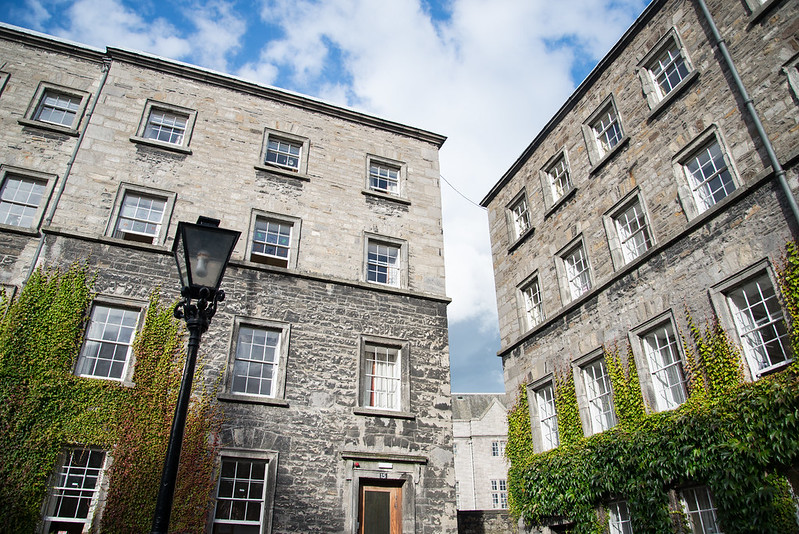When I sat down to write this piece, all I could think was that running the Schols exams online while maintaining the academic rigour and integrity of the exams would be simply impossible. But the purpose of the Schols exams is to think deeply, critically and creatively about the questions and problems presented to you, so I want to apply that line of thinking here, and I want to ask the senior administrative officials of College to apply that thinking as well.
Given appropriate consideration, I do believe that Schols can continue successfully this year, but it will take swift and well-thought-out action to do so. The coronavirus pandemic does not change the fact that there are motivated students across every faculty who are up for this challenge, and deserve to get their chance to tackle it.
The key issues that arise for this year’s prospective Scholars are timing, format changes and the integrity of online exams. Last year, students planning to sit the Schols exams were informed of key dates and format information by email on September 23rd 2019, 15 weeks prior to the exams. This year, students have been given that information with 11 weeks’ notice, giving them a full month less to prepare.
Although not ideal, the timing of this year’s email would have had fewer consequences in previous years, since students have access to past papers and a general idea of how the exams proceed every year. In addition to less time, however, this year’s second-year students have also been informed that there will be changes to “the traditional layout of individual exam papers” for students within the Common Architecture, with details of these changes varying between courses.
When I sat down to write this piece, all I could think was that running the Schols exams online while maintaining the academic rigour and integrity of the exams would be simply impossible
To help minimize the added stress from these two issues, each course coordinator must determine the changes that will be made and communicate them to students as soon as possible, and ideally provide a sample exam paper if the format changes are significant. This will help students have adequate time to adjust their studying to practice any new question types or subject areas that are being introduced.
Perhaps the most pressing issue, however, is how to maintain the academic challenge of the Schols exams and prevent cheating while running the exams online. It is inevitable that students taking exams online will have notes, whether in books, hand-written or on a computer or phone, accessible to them, whether they are told that is permitted or not. To counter this, question types like asking students to come up with original theories based on their factual knowledge of the subject, finding connections between two seemingly disparate areas of their field or being asked why a certain paper or book provided a significant contribution to their field of study are vital.
These are just a few examples and the creativity in these higher-order thinking question types will vary hugely between courses of study. I think it would help maintain the challenge of the exams by asking these questions that require originality from the student and cannot be found on Google or in a textbook.
The additional safety measure of live proctoring was suggested to me by a fellow Scholar. The activity of a student’s computer is monitored by machine-learning software to identify suspicious activity while the student themselves is viewed by an exam invigilator through their webcam to identify suspicious behavior. Though to some this may seem like an invasion of privacy, it is arguably merely the virtual version of the exam invigilators during in-person assessments, checking student IDs and monitoring for cheating.
Question types like asking students to come up with original theories based on their factual knowledge of the subject, finding connections between two seemingly disparate areas of their field or being asked why a certain paper or book provided a significant contribution to their field of study are vital
These solutions aren’t perfect, but under circumstances as unusual as these, they may go a long way towards maintaining the long-held tradition of Trinity’s Foundation Scholarship. Many challenges remain, including a point that the Scholars’ Committee made about “only the best cheaters being elected Scholars” under the system proposed by Trinity to introduce quotas for each course consistent with previous numbers of elected Scholars.
The quota system that Trinity suggested operates under the assumption that everyone will cheat on the exams, thus getting much higher marks than usual and creating a surplus of 2021 Scholars. What this assumption ignores is the experience of the lecturers marking the exams, many of whom I imagine can discern an original, well-thought out argument from a haphazard attempt at answering a question put together using resources from the internet.
If the various Schools in Trinity can decide on format changes to their Schols papers and communicate those changes to students as soon as possible, the integrity of these exams may remain. If we see Trinity implementing higher-order questions combined with live proctoring, I believe that Schols will continue to be a great academic challenge that provides motivated students a chance to demonstrate and apply the extra effort they have put into their studies.







